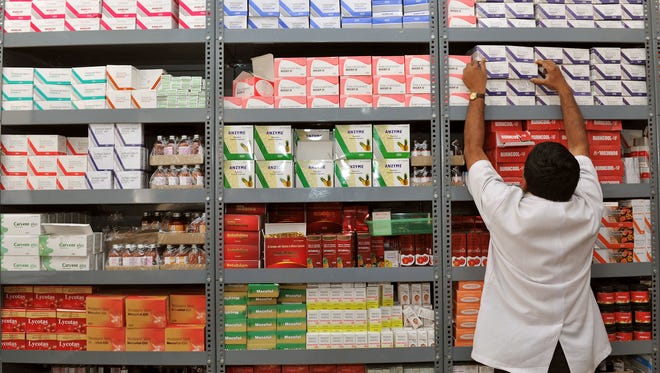Mylan offers generic EpiPen: What's the difference?

Is a brand name medication always better than a generic drug?
The question of brand over generic, came to forefront Monday, when drugmaker Mylan announced that it will offer a generic version of the life-saving allergy treatment EpiPen for half the list price of the brand name, which had become the center of a national controversy over skyrocketing drug prices.
The Food and Drug Administration requires that the active ingredients in the brand-name drug and generic drug are the same, according to Rob Glatter, an emergency physician at Lenox Hill Hospital in New York City.
“The generic drug is just as safe as taking the [brand] medication,” Glatter said in a phone interview. “There should be confidence in patients' ability to take generic forms of medication, when it’s coming from reputable companies."
EpiPen's steady price increases masked until deductibles rose
While generic drugs are required to have the same "active ingredient, strength, dosage form, and route of administration" as the brand, they do not have to contain the same inactive ingredients, according to the FDA.
The drugs have to look different, so the inactive ingredients are products like color additives, according to Jamin Brahmbhatt, a physician with Pur Clinic in Orlando.
"Viagra may be blue, but someone could make a generic version of Viagra that's pink," he said. "That's the inactive ingredients."
Because drugs are developed under patents, the company that created the drug is the only entity that can sell the drug while the patent is in effect. Once the patent expires, manufacturers can apply to the FDA to sell the generic form of the drug, according to the FDA.
Mylan to offer generic EpiPen for 50% less
According to the FDA, studies have shown that generic drugs work just as effectively as brand drugs, and doctors often prescribe them because they are cheaper and often preferred by insurance companies.
“I prescribe brand names, when I do not have a choice and there is no generic alternative,” Brahmbhatt said, noting that sometimes the difference between brand and generic can be a hundred or more dollars.
Brahmbhatt said there are exceptions where there brand drug may be a better choice for a patient. He said in some cases, the generic drug has the same active ingredient as the brand, but there is a small difference in the way the drug is absorbed.
But for patients who are candidates for generic drugs, despite the difference in price, patients may only feel comfortable taking brand name medications.
“It’s the idea of trust,” Glatter said. “If people are reliant on branding and brand names when taking medication, they want to feel that confidence and safety, knowing they are taking a brand name opposed to generic.”
Follow @MaryBowerman on Twitter.